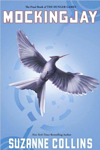
Search
Categories
Famous Authors
Top Selling Books

Book Home ![]() Famous Authors
Famous Authors ![]() Howard Bahr
Howard Bahr
Howard Bahr

Howard Bahr the graet Novelist, born in Meridian, Mississippi. Bahr, who served in the U.S. Navy during the Vietnam War and then worked for several years on the railroads, enrolled at the University of Mississippi in the early 1970s when he was in his late 20s. He received his B.A. and M.A. from Ole Miss and served as the curator of the William Faulkner house, Rowan Oak, in Oxford, Mississippi for nearly twenty years. He also taught American literature during much of this time at the University of Mississippi. In 1993, he became an instructor of English at Motlow State College in Tullahoma, Tennessee, where he worked until 2006. Bahr is the author of three critically acclaimed novels centering around the American Civil War. He currently resides in Jackson, Mississippi, and teaches courses in creative writing at Belhaven College.
Howard Bahr was an American author and prophet whose writings, set in his beloved native South, wrote of the human experience within the backdrop of the south's unique culture and history. He was known for a style that blended humor with deep emotional resonance.
His father had been a Baptist preacher before becoming a newspaper editor, so it was no surprise that young Howard was a natural storyteller. After graduating from high school and college, he studied at the University of Southwestern Georgia and the University of Arkansas. He earned a Master of Fine Arts from the University of Florida.
Bahr began his writing career in the 1970s, writing both fiction and non-fiction articles that appeared in publications such as Southern Living, Civil War Times Illustrated, as well as the short-lived regional publication, Lagniappe (1974-75) which he and Franklin Walker co-edited. His first published book, a children's story entitled Home for Christmas, came out in 1987 and was re-published in 1997 in a different edition (with new illustrations) following the release of his first novel, The Black Flower: A Novel of the Civil War. This latter book, set during the Battle of Franklin, Tennessee in 1864, was nominated for a number of national awards, including from the American Academy of Arts and Letters, Gettysburg College, and the Book-of-the-Month Club, and was a New York Times Notable Book, but its release was somewhat overshadowed by the release at the same time of the bestseller, Cold Mountain.
His first short story, "The CatHead Editors," was published in a literary magazine in 1981. From then, over the following four decades, Bahr wrote short stories, novels, and essays. His writing style mixes elements of realism, humor, and tragedy, often with a commentary on the social and historical dynamics of the South in particular.
In 2000, Bahr's second novel, The Year of Jubilo, was released. This novel, set in the immediate aftermath of the Civil War in the fictional Mississippi town of Cumberland, deals with the dehumanizing effects of war and its aftermath on Southern society. The Year of Jubilo, like The Black Flower, was a New York Times Notable Book.
Bahr's third novel, The Judas Field, was released in 2006. In The Judas Field, Bahr again returns to the Battle of Franklin theme, but this time it is through the eyes of one of its participants, again from Cumberland, who travels back to the battlefield in the 1880s to recover the body of one of the fallen, and, in doing so, relives the horror of that fateful day in 1864.
Howard Bahr is a Freemason, having served as Master of the Lodge while he was in Oxford. He is also a member of the Episcopal Church.
In addition to narrative writing, Bahr was a poet, playwright, and essayist whose books focus on the human condition and its relation to southern culture. His essays were collected in the nonfiction book Pascagoula Run (2011), in which he returns to the areas of the Gulf Coast that shaped his childhood.
Throughout his literary career, Bahr was praised for both his compelling story-telling and the insight he offered on his beloved South. "He was one of the South's most influential living writers," wrote The Washington Post.
For his contribution to literature, Bahr was awarded the lifetime achievement award from the Fellowship of Southern Writers in 2014 and the Lillian Smith Book Award for his novel The Year of Jubilee. He was also a Guggenheim fellow.
Although he passed away in 2021, the legacy of Bahr's work will live on. His stories have been published in multiple languages and continue to be part of the wider world of literature. His is a voice that should not be forgotten, and his works will continue to be studied and admired for generations to come.